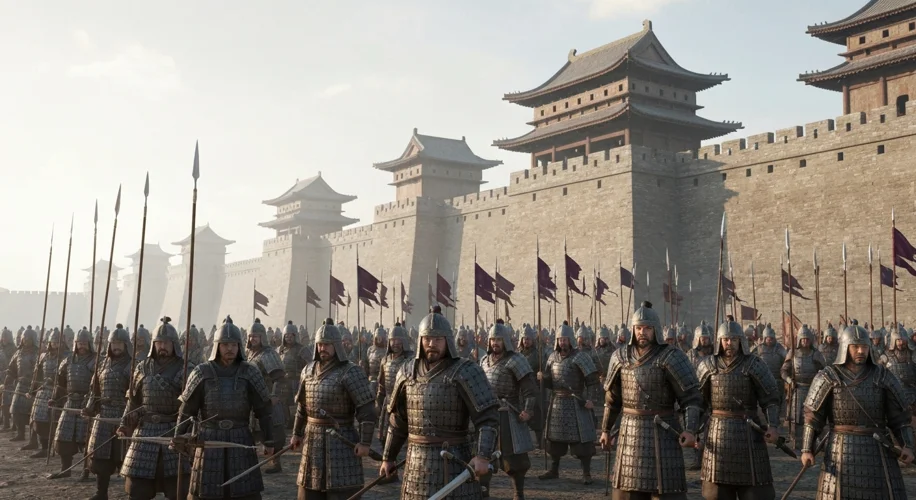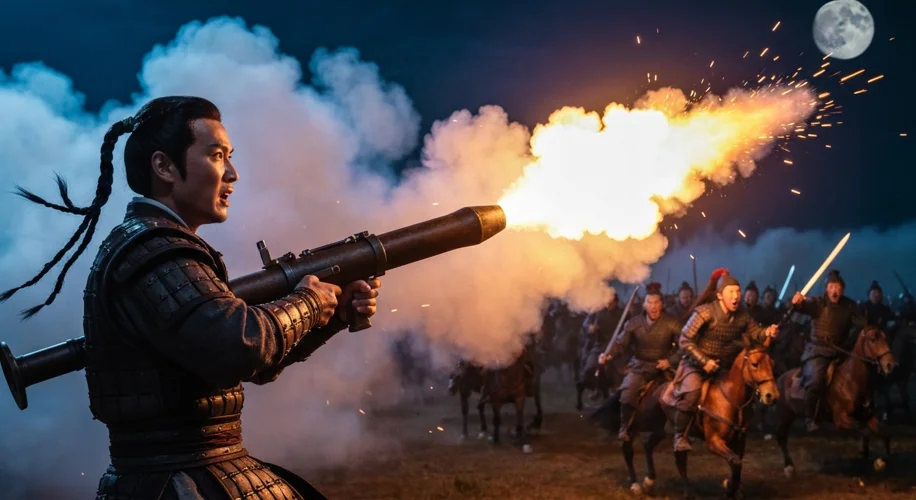The Song Dynasty (960-1279 CE) stands as a paradox in Chinese history. It was a golden age of unparalleled technological innovation, economic prosperity, and artistic brilliance. Yet, it was also a period plagued by external threats and military vulnerabilities, a constant tightrope walk between cultural flourishing and existential danger. At the heart of this delicate balance lay the Song’s unique and often debated military institutions.
Unlike earlier dynasties that relied on vast conscript armies or powerful aristocratic generals, the Song leadership, scarred by the chaos of the preceding Five Dynasties and Ten Kingdoms period, was determined to centralize military power and prevent the rise of warlords. This led to the creation of a professional, standing army, a significant departure from the norm.

The cornerstone of the Song military was the ‘Guarding the Center’ (Guo Shi) system. This involved stationing a substantial portion of the army in and around the capital, Kaifeng, and later Lin’an. The idea was to maintain a strong, loyal force directly under imperial control, ready to quell any internal dissent or react swiftly to external threats. Soldiers were recruited through a mix of conscription and voluntary enlistment, but crucially, they were professional soldiers, trained and paid by the state. This created a career path and a sense of loyalty to the dynasty rather than to individual commanders.
The Song also pioneered significant advancements in military technology. Gunpowder, already known, was weaponized on an unprecedented scale. The dynasty developed a terrifying array of gunpowder-based weapons, including fire arrows, flaming projectiles, explosive bombs (like the ‘Thunderclap Bomb’ or Leigongpao), and rudimentary rockets. The arsenal was managed by specialized government bureaus, ensuring quality control and efficient production.
Naval power was another area of Song innovation. With a vast coastline and extensive river systems, a strong navy was essential. The Song developed large, advanced warships, including paddle-wheel boats and siege vessels. They also excelled in naval tactics and logistics, establishing naval bases and employing specialized naval units. The Battle of Junbao in 1161, where the Song navy inflicted a crushing defeat on the Jurchen Jin Dynasty fleet, demonstrated the effectiveness of their maritime strength.
However, these advancements and reforms were not without their critics and consequences. The ‘Guarding the Center’ policy, while ensuring loyalty, often meant that the best troops were stationed far from the frontiers where they were most needed. This created a situation where the experienced frontier garrisons were often underfunded and undermanned, leading to a reliance on hastily mobilized, less experienced troops when invasion occurred.
The Song’s emphasis on civilian rule and the suppression of military influence also had a dual effect. While it prevented the kind of military coups that plagued earlier dynasties, it also meant that civilian officials, often lacking military expertise, were sometimes placed in charge of military affairs. This could lead to strategic blunders and a disconnect between policy and battlefield realities.
The constant need to maintain a large, professional army and a sophisticated arsenal placed a tremendous strain on the Song economy. Taxes were high, and a significant portion of the state budget was dedicated to military expenditure. This economic burden, coupled with the military’s internal strengths and weaknesses, set the stage for the dynasty’s eventual downfall. Facing formidable nomadic powers like the Khitans, Jurchens, and eventually the Mongols, the Song military, despite its technological prowess and professionalization, often found itself outmaneuvered, outnumbered, or strategically outmatched.
The legacy of the Song military institutions is complex. They represent a fascinating attempt to create a stable, centralized military power in a turbulent era. The technological innovations, particularly in gunpowder warfare, had a profound and lasting impact on military history. Yet, the structural weaknesses, the delicate balance between civilian control and military effectiveness, and the sheer pressure of external enemies ultimately proved too much for the Song to overcome. Their story is a compelling reminder that military strength is not just about technology or organization, but also about strategy, leadership, and the ever-present tides of history.

